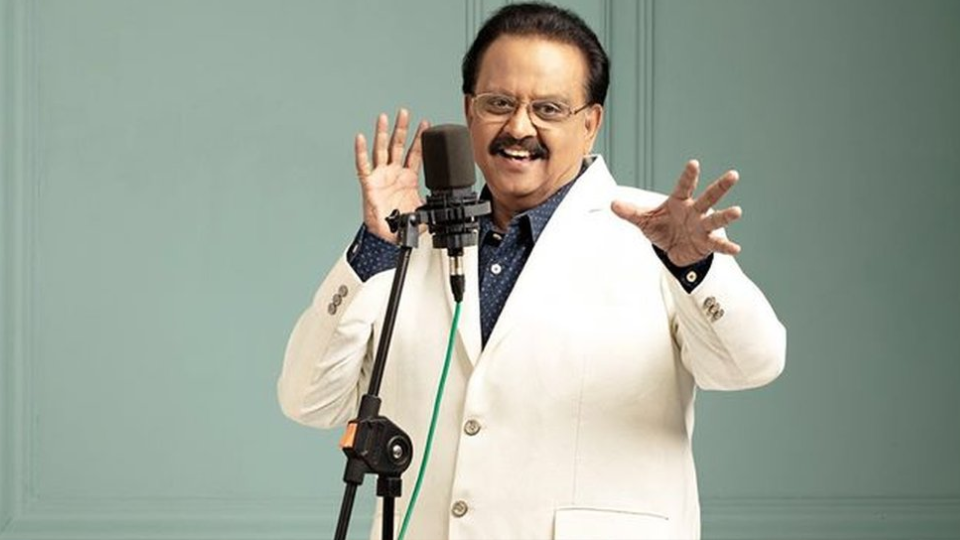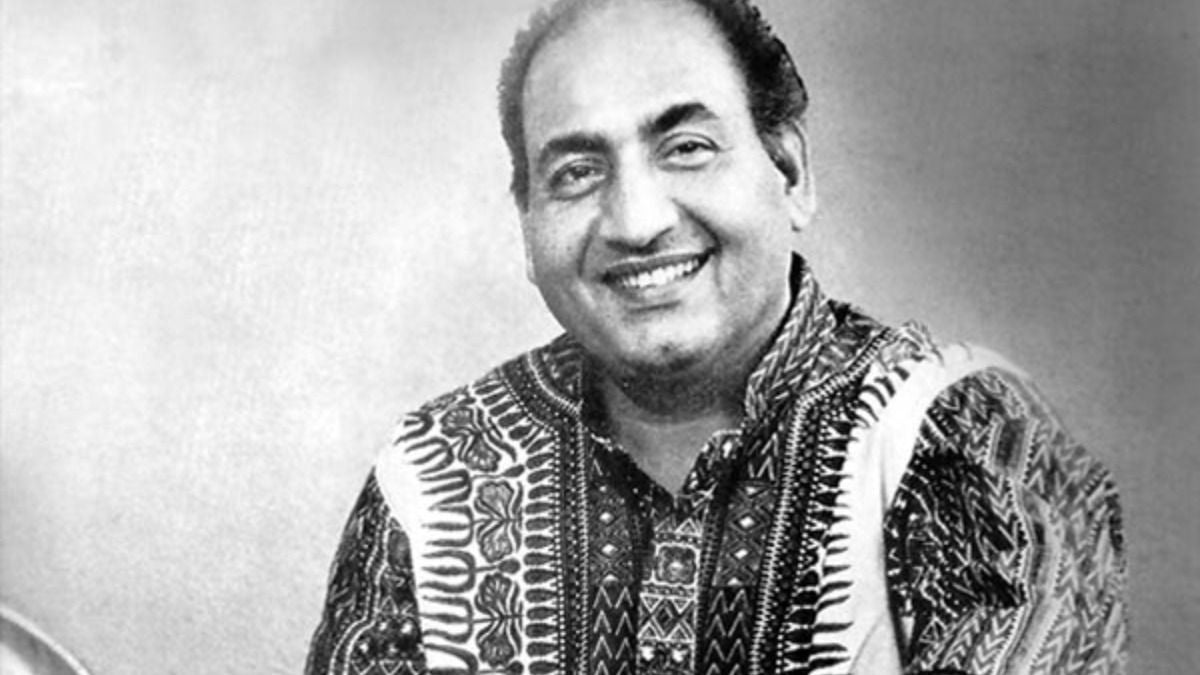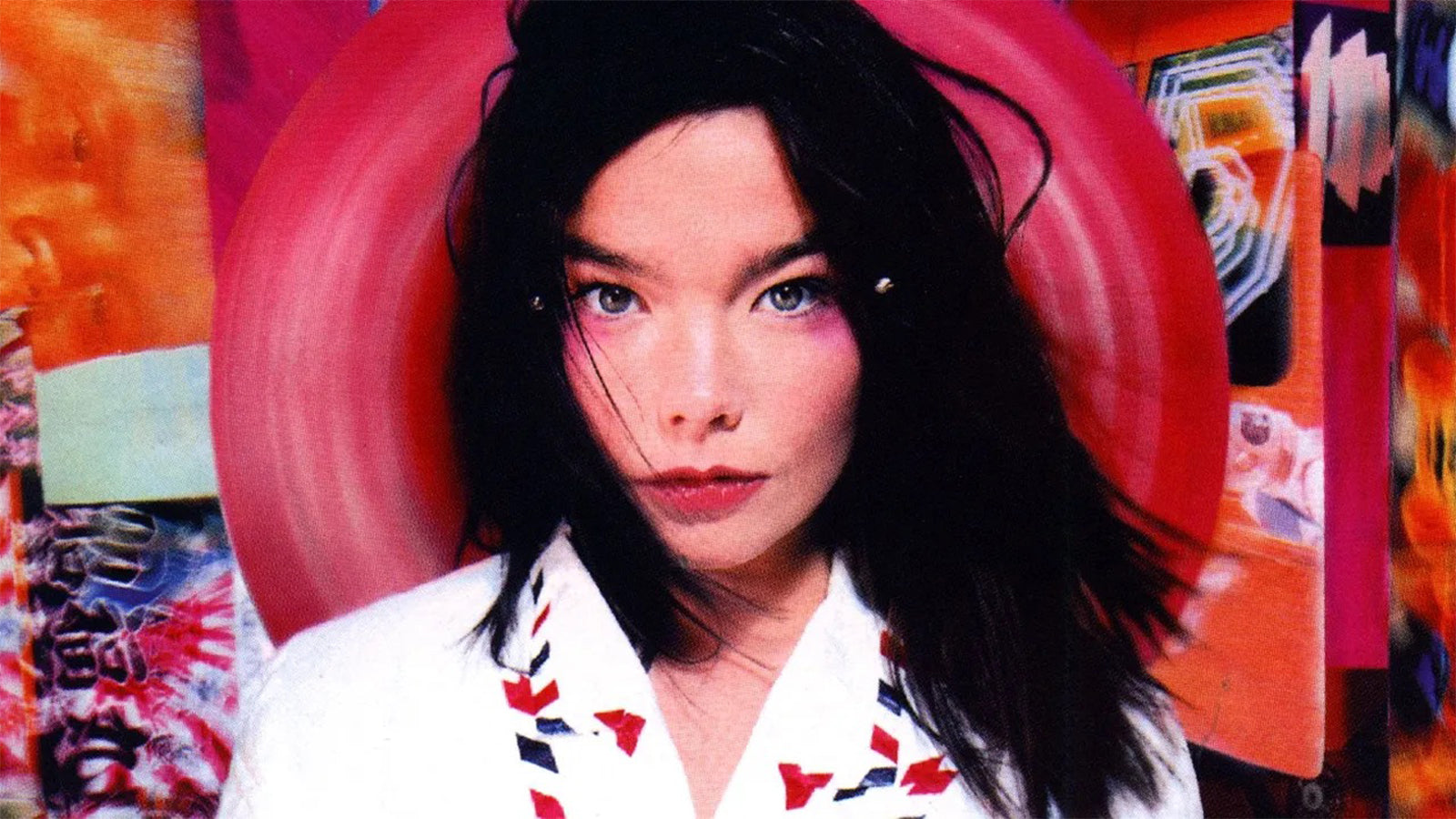Balladeer To A Nation: Why S.P. Balasubrahmanyam's music refuses to fade away

For four decades, India found its emotions in one man’s voice. Lovers confessed, gods were praised, and actors rose to stardom because S. P. Balasubrahmanyam sang for them.
His first song in 1966 for Sri Sri Sri Maryada Ramanna announced a voice both supple and unshowy. By the ’70s, under Ilaiyaraaja’s baton, he had become indispensable. Their partnership produced classics like Ilaya Nila and Sundari Kannal, where the composer demanded extremes of pitch and phrasing and SPB responded effortlessly.
The ’90s brought Rahman’s modern sound, and SPB met it with ease; in Kadhal Rojave, his voice held the ache of a generation in transition. In Hindi cinema too, from Maine Pyar Kiya to Hum Aapke Hain Koun, his voice defined the mood of entire decades.
Actors leaned on him as much as composers. Kamal Haasan’s emotional intensity, Rajinikanth’s style, Salman Khan’s innocence in the ’90s—each became believable through SPB’s voice.
The scale remains staggering: over 40,000 songs in 16 languages, sometimes 15–20 in a single day!
Every Indian has an SPB memory: the romance of Saathiya Tune Kya Kiya, the timelessness of Ilaya Nila, the yearning of Kadhal Rojave. His voice was everywhere—on temple loudspeakers, in morning radio shows, at political rallies, in festival streets and wedding halls. It wasn’t background music; it was the emotional scaffolding of daily life.
Awards like the Padma Bhushan and Padma Shri barely hint at his legacy. What defined him was his humility. He called himself a “bathroom singer turned playback voice,” rehearsed every song as if it were his first. Even in his final days, he recorded messages with the same optimism that marked his life.
When he passed away in September 2020, silence seemed to enter Indian cinema. Yet he remains everywhere: in reels reviving his ’90s melodies, in playlists rediscovered by Gen Z, in the echoes of street celebrations.
Perhaps that is true immortality: when a country cannot imagine its emotions without imagining you.
Emiyee Vinta Moham
Sri Sri Sri Maryada Ramanna (1966)
SPB’s debut playback number—guided by his mentor S.P. Kodandapani announced a voice that would redefine romance in Indian cinema. His effortlessly smooth delivery over a melodious backdrop marked the emergence of a playback legend.
Medante Meda Kaadu
Sukha Dukhalu (1968)
An early hint of his emotional depth, this song helped establish SPB’s connection with Telugu audiences. His heartfelt phrasing turned simple lyrics into memorable moments of longing.
Aayiram Nilave Vaa
Adimai Penn (1969)
A romantic breakthrough sung for M.G.R., this track showcased SPB’s youthful charm and expressive control. It wasn’t just a hit—it was the spark that announced his arrival as a fresh, emotive voice in Tamil cinema.
Tere Mere Beech Mein
Ek Duuje Ke Liye (1981)
His Bollywood debut, this duet with Lata Mangeshkar earned him his second National Award. SPB’s crystal-clear diction and emotional honesty helped southern sensibility cross into Hindi cinema’s heart.
Ilaya Nila
Payanangal Mudivathillai (1982)
With Ilaiyaraaja’s haunting melody, SPB’s velvety croon evoked tender melancholy. The blend of synth and sepia-toned nostalgia turned this into an evergreen soul-stirrer, defining modern Tamil romance.
Aaja Shaam Hone Aayee
Maine Pyar Kiya (1989)
A romantic evening ballad sung for Salman Khan's debut, it became an anthem for budding lovers. SPB’s gentle warmth anchored a love story that defined an era.
Dil Deewana
Maine Pyar Kiya (1989)
This fervent love confession made SPB the romantic voice of ’90s Bollywood. Earned him a Filmfare Award, reinforcing his bond with North Indian audiences.
Saathiya Tuune Kya Kiya
Love (1991)
A soulful duet with Chitra, this ballad became a cult hit. SPB’s tender phrasing gave the song an emotional intensity that stood out in a film otherwise less remembered, proving his power to elevate material through sheer delivery.
Dekha Hai Pehli Baar
Saajan (1991)
A lively romantic duet with Alka Yagnik, but its balladic refrain and SPB’s textured delivery kept it heartfelt rather than frivolous. The song’s success made him a fixture in early ’90s Bollywood love stories.
Kadhal Rojave
Roja (1992)
As Rahman’s debut track, SPB infused modern soundscapes with yearning purity. His expressive tenor made the song—and the album—a generational turning point.
Didi Tera Devar Deewana
Hum Aapke Hain Koun..! (1994)
Playful, joyous, and eternally catchy—this duet with Lata Mangeshkar made SPB the voice of celebration. It anchored India’s highest-grossing film and mirrored a nation’s festive soul.
Gopala Gopala
Kaadhalan (1994)
An uptempo fusion of folk and pop with SPB’s voice guiding the rhythm. It exemplified his seamless partnership with Rahman—blending tradition with contemporary vibrancy.
Pehla Pehla Pyaar Hai
Hum Aapke Hain Koun..! (1994)
A sweeping declaration of love, blending grandeur with intimacy. SPB’s soaring notes embodied the thrill of first romance, ensuring this track remains one of the most iconic Bollywood ballads of the ’90s.
Thoda Thoda Pyar
Priyanka (1995)
A gentle duet of burgeoning affection, SPB’s gentle voice in this Rahman-reused tune underscored his ability to convey romantic subtlety without overstatement.
Thanga Thamarai
Minsara Kanavu (1997)
Amid Rahman’s lush orchestration, SPB’s mature and textured delivery gave the song emotional depth. His soulful resonance proved timeless—even as the industry’s voices grew younger.
Bharath Bhoomi (2020)
A poignant tribute to COVID-19 frontline heroes, this Ilaiyaraaja-composed number revealed SPB’s unwavering humanity. Even in his final months, his voice stayed hopeful, a balm to collective grief.




Comments
MRS DEJANA IVICA — 1 day ago
TANGIBLE INFORMATION ABOUT LOAN PLANNING… THIS HAPPY NEW YEAR..
This is not a normal post that you see every day on the internet where people give fake reviews and false information about excellent financial assistance. I am aware that many of you have been scammed and that fake agents have taken advantage of those seeking loans. I will not call these normal reviews, I will call this situation where I live a witness to how you can get your loan when you meet the company’s requirements. It really does not matter if you have a good credit rating or government approval, all you need is a proper ID card and a valid IBAN number to be able to apply for a loan with an interest rate of 3%. The minimum amount is 1000 euros and the maximum amount that can be borrowed is 100,000,000 euros. I give you a 100% guarantee that you can get your loan through this reliable and honest company, we operate 24 hours online and provide loans to all citizens of Europe and outside Europe. They sent me a document that was checked and tested before I got the loan, so I invite anyone who needs a loan to visit them or contact them via email: michaelgardloanoffice@gmail.com
WhatsApp for Europe: +38591560870
WhatsApp for USA: +1 (717) 826-3251
After you contact them, let them know that Mrs. Dejana Ivica from Zagreb gave you the information. Seeing is believing and you will thank me later when you get a loan from them. I made a promise that after I get a loan from them, I will post the good news to everyone online. If you have friends or relatives, including colleagues, you can tell them about this offer and that it is happening.
Christopher William —
DR UYI has done it for me, His predictions are 100% correct, He is real and can perform miracles with his spell. I am overwhelmed because I just won 336,000, 000 million Euro from a lottery jackpot game with the lottery number DR UYI gave me. I contacted DR UYI for help to win a lottery via Facebook Page DR UYI, he told me that a spell was required to be casted so that he can predict my winning, I provided his requirements for casting the spell and after casting the spell he gave the lottery numbers, I played and won 336,000,00 euros. How can I thank this man enough? His spell is real and like a God on Earth. Thank you for changing my life with your lottery winning numbers. Do you need help to win a lottery too? contact Dr UYI via drzukalottospelltemple@gmail.com OR WhatsApp on +17174154115
Big Bull —
SELLING FULLZ SSN USA NIN UK SIN CANADA
AUS SPAIN ITALY GERMANY Fullz available
Fresh Stuff & Fresh Spammed
Available in bulk quantity
Valid & guaranteed info
DL front back with selfie
DL with issue & exp dates
DL with SSN
SSN DOB DL ADDRESS—> USA
NIN DOB DL ADDRESS—> UK
SIN DOB ADDRESS MMN—> CANADA
Tax Return Filling Fullz & KYC Stuff
HACKING & SPAMMING TOOLS & TUTORIALS
COMPLETE PACKAGES WITH ALL TOOLS & TUTORIALS INCLUDED
SCAM PAGES|SCRIPTING
CASH OUT & CARDING STUFF
LOAN METHODS & CARDING METHODS
Many Other stuff for cashing out|filling for loans|KYC
All stuff will be 101% Genuine, nothing generated or edited
Contact us here only (Be aware from scammers)
Telegram – @ killhacks ’ @ leadsupplier
What’s App – +1 7277..88..612..9
TG Channel – t.me/ leadsproviderworldwide
Email – hacksp007 at gmail dot com
VK Messenger – @ leadsupplier
USA STUFF:
SSN DOB ADDRESS FULLZ
SSN DOB DL ADDRESS FULLZ
SSN DOB DL ADDRESS EMPLOYMENT & BANK INFO FULLZ
SSN DOB DL ADDRESS DL ISSUE & EXP INFO FULLZ
FULLZ WITH MVR
USA DL|ID FRONT BACK WITH SELFIE & SSN
USA LLC DOCS
USA W-2 FORMS
USA Passport Photos
High Credit Scores Pros
SweepStakes & Dead Fullz
Business EIN Company Pros|EIN Lookup
Dumps & CC with CVV
-———————————————————————-
UK (UNITED KINGDOM) STUFF:
NIN DOB ADDRESS FULLZ
NIN DOB DL ADDRESS FULLZ
NIN DOB DL ADDRESS SORT CODE & ACCOUNT NUMBER FULLZ
High Credit Scores Pros Fullz
UK DL Front Back with Selfie
UK Email & Phone number Leads
UK Passports
Consumer Leads UK
Bank Leads with sort code & account number UK Fullz
-———————————————————————-
CA (CANADA) STUFF:
SIN DOB ADDRESS FULLZ
SIN DOB ADDRESS MMN FULLZ
SIN DOB ADDRESS MMN PHONE POST CODE FULLZ
Canada DL Front Back with Selfie
CA Email & Phone Number leads
High Credit Score Fullz
Canada Passports
-————————————————————————
OTHER STUFF WE’RE PROVIDING WITH GUARANTEE:
EMAIL LEADS (Crypto|Unemployment|Casino|Medical|Health|Office365)
Car Database with Vehicle registration numbers
Email Combos
I.P & Proxies
Different type of Docs available
TOOLS AVAILABLE
SMTP RDP SHELLS C-PANELS
KALI LINUX
RATS & VIRUSES
Web-Mailers
SMS & Email Senders
Scam Pages & Scripting
Office365 Spamming Stuff
#FULLZ #TOOLS #TUTORIALS #EBOOKS #USAFULLZ #UKFULLZ #CAFULLZ #DLPHOTOS
#HACKING #SPAMMING #CARDING #SPOOFING #LEADSUSA #COMBOS #CRYPTOLEADS
#UKLEAD #CANADALEADS #HIGHCREDITSCOREPROS #CRYPTOPAYMENTS #PROS #OFFICE365
#SENDERS #FULLZSHOP #DUMPSCVV #CCFULLZ #USACC #FULLZDUMPS #DUMPSID #DUMPSDL
#EMAILLEADS
Contact here only (Be aware from scammers)
Telegram – @ killhacks ’ @ leadsupplier
What’s App – +1 7277..88..612..9
TG Channel – t.me/ leadsproviderworldwide
Email – hacksp007 at gmail dot com
VK Messenger – @ leadsupplier
MRS DEJANA IVICA —
TANGIBLE INFORMATION ABOUT CHRISTMAS LOAN FOR PLANNING…
This is not a normal post that you see every day on the internet where people make false statements and false information about huge financial assistance.. I am aware that many of you have been scammed and that fake agents have taken advantage of those seeking loans. I will not call this a normal statement, I will call this situation where I live a witness to how you can get your loan when you meet the company’s requirements. It really does not matter to have a good credit rating or government approval, all you need is a valid ID card and a valid IBAN number to be able to apply for a loan with an interest rate of 3%. The minimum amount is 1000 euros and the maximum amount that can be borrowed is 100,000,000 euros. I give you a 100% guarantee that you can get your loan through this reliable and honest company, we operate 24 hours online and provide loans to all citizens of Europe and outside Europe. They sent me a document that was checked and tested as valid before I got the loan, so I invite anyone who needs a loan to visit them or contact them via
Email: michaelgardloanoffice@gmail.com
WhatsApp for Europe: +385915608706
WhatsApp for USA: +1 (717) 826-3251
After you contact them, let them know that Ms. Dejana Ivica from Zagreb gave you the information. Seeing is believing and you will thank me later when you get a loan from them. I made a promise that after I get a loan from them, I will post the good news to everyone online. If you have friends or relatives, including colleagues, you can tell them about this offer and that it is happening this CHRISTMAS.
Sharon Ronald —
I want to share my amazing experience with Dr. Great. My relationship ended unexpectedly, and I was completely heartbroken. I tried everything I could to fix things, but nothing worked. Then I came across Dr. Great, and after reading about his work, I decided to give it a try. Dr. Great listened to my situation with kindness and understanding. He performed a powerful reconciliation spell and guided me through the process. To my surprise, within a few days, my ex-boyfriend reached out to me. We started talking again, worked through our issues, and eventually got back together. Now our relationship is stronger, happier, and filled with more love than ever before. I’m so grateful to Dr. Great for bringing us back together. His work truly changed my life. Email Dr Great at
infinitylovespell@gmail.com
Add him up on WhatsApp +2347080414916
WEBSITE https://infinitylovespell.wixsite.com/infinity-love-spell
Sharon Ronald —
I want to share my amazing experience with Dr. Great. My relationship ended unexpectedly, and I was completely heartbroken. I tried everything I could to fix things, but nothing worked. Then I came across Dr. Great, and after reading about his work, I decided to give it a try. Dr. Great listened to my situation with kindness and understanding. He performed a powerful reconciliation spell and guided me through the process. To my surprise, within a few days, my ex-boyfriend reached out to me. We started talking again, worked through our issues, and eventually got back together. Now our relationship is stronger, happier, and filled with more love than ever before. I’m so grateful to Dr. Great for bringing us back together. His work truly changed my life. Email Dr Great at
infinitylovespell@gmail. com
Add him up on WhatsApp +2347080414916
Mark —
I URGENTLY NEED A LOVE SPELL CASTER TO HELP ME GET MY EX BACK CONTACT (DR DAVID) AWESOMESPELLTEMPLE@YAHOO.COM OR +2347051149457 I want to share my wonderful testimony how I got back my husband back, who I sworn ever to be with until when he left me to another woman for no reason and I try to make things work for both of us yet things were getting worse and I love him so much and there is nothing I could do to get my husband back until I saw a testimony share by a woman called Rachel from Florida on the internet talking about a powerful spell caster who brought her husband back within 24 hours and I decide to give it a try and to my greatest surprise he also did it for me just as he did for Rachel and I have a lot of people complaining of fake spell caster but this one I met was a real spell caster who help me to solve my problem I have no solution to, I introduce many of my best friends that have a similar problems, and their problem were solve with the great help of DR David, who help them to get back their lovers within 24 hours. I am so happy that my husband is back to me again, and the most surprising thing is that our love is very strong, every day is happiness and joy. and There is nothing like being with the man you love. I am so happy my love is back to me with the help of DR David . if you have similar problem I will advise you to contact him ,he is there to help you and put a smile on your face as he did to me and others you can also WhatsApp him +2347051149457 or Email him at :awesomenesspelltemple@gmail.com or view his website for more review: https://63e1caad0959a.site123.me/
Bram Orrie —
HOW I RECOVER $850 FROM FAKE INVESTMENT BROKER ONLINE
I’m grateful to THE HACK ANGELS RECOVERY EXPERT for helping me recover my stolen Bitcoin. After losing funds to a fake platform, I felt hopeless. I am deeply grateful for their support. If you have fallen victim to a Bitcoin scam or any other form of cryptocurrency fraud, don’t give up. Reach out to THE HACK ANGELS RECOVERY EXPERT Contact:
WhatsApp (+1(520)200-2320
Email at support@thehackangels.com
Website at www.thehackangels.com
If you’re in London, you can even visit them in person at their office located at 45-46 Red Lion Street, London WC1R 4PF, UK.